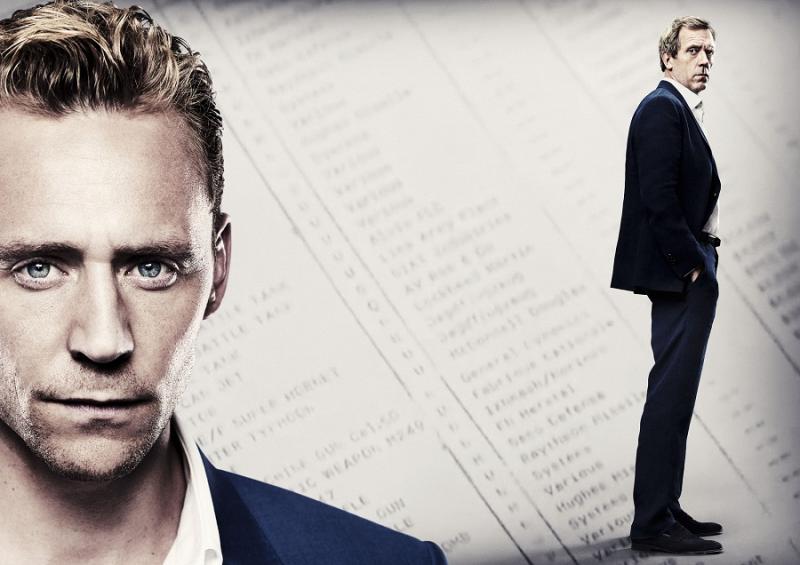First Person: 'It's all about deception' | reviews, news & interviews
First Person: 'It's all about deception'
First Person: 'It's all about deception'
The Ones Below is a new film written by David Farr, who adapted The Night Manager. He explores the common ground between them

I’ve been working on two projects over the last four years and like buses they’ve arrived on British screens at the same time. On the surface they seem very different. My adaptation of John Le Carré’s The Night Manager is a huge epic sprawling espionage drama that spans six episodes and several years, moving from the Egypt of the Arab Spring to London, Spain, Turkey and beyond.
One is vast and epic, the other focused and personal. And yet I see intimate connections between the two dramas. In essence I think it’s because both revolve around the great themes of seduction and betrayal.
John le Carré is the master of attraction and deception. His entire oeuvre is a wonderful and dark litany of broken trusts and secret passions. The Night Manager is no different. Though not a Cold War novel, it carries with it the same cloaked tensions as the great Smiley books. In this case the central relationship of love, hate and betrayal is between Hugh Laurie’s Richard Roper and Tom Hiddleston’s Jonathan Pine. Roper and Pine are not just conventional thriller adversaries. It’s as if they are made for each other. Their psyches are intensely drawn to each other. Perhaps Roper is the father Pine lost many years ago. Pine might just be the son and heir Roper so desperately needs to perpetuate himself into the future beyond his own mortality. This is a very male tale of attraction and betrayal. And with characteristic le Carré skill one is never quite sure which way it will go next. It was for this reason a thrilling joy to adapt.
 In my film The Ones Below the two protagonists are women, both pregnant, both living in the same Victorian mansion block. Clémence Poésy’s Kate (pictured) is a sophisticated modern. She has a career, she enjoys her freedoms and she is unsure of whether motherhood will suit her. By contrast Laura Birn’s Theresa is convinced of her right to be a mother. She and her partner Jon (played wonderfully by David Morrissey) have waited seven years to conceive. This is the moment they have been hoping for, dreaming of, and nothing will stop them now.
In my film The Ones Below the two protagonists are women, both pregnant, both living in the same Victorian mansion block. Clémence Poésy’s Kate (pictured) is a sophisticated modern. She has a career, she enjoys her freedoms and she is unsure of whether motherhood will suit her. By contrast Laura Birn’s Theresa is convinced of her right to be a mother. She and her partner Jon (played wonderfully by David Morrissey) have waited seven years to conceive. This is the moment they have been hoping for, dreaming of, and nothing will stop them now.
Kate and Theresa meet, and as often happens with pregnant women, a bond of attraction grows. Kate adores Theresa’s positivity, her winning smile, the brightness of her clothes, her garden, her sunny outlook. It makes Kate feel for the first time that maybe motherhood might suit her after all. Theresa is the mother Kate needed to meet, and quite possibly needed to be. Then one night something goes very violently wrong. And the nightmare begins.
 In both dramas there is the sense that one character is a kind of mirror or shadow to the other. Roper is Pine’s dark shadow, his nemesis, his alter ego. Theresa is the projection of all of Kate’s desires and fears.
In both dramas there is the sense that one character is a kind of mirror or shadow to the other. Roper is Pine’s dark shadow, his nemesis, his alter ego. Theresa is the projection of all of Kate’s desires and fears.
Perhaps psychological thrillers need this eerie “doubleness”. Think of Patricia Highsmith’s Strangers on a Train, or Dostoyevsky, or Vertigo. Hitchcock is almost morbidly obsessed with the “other”. Rohmer and Chabrol, in their seminal book on Hitchcock locate a Catholic obsession with guilt as the deep cause of this doubling. But in the Jewish tradition of Polanski, Kafka and to some extent myself (pictured above left: David Farr), there is also an obsession with the double. The person you meet might be your enemy, but might also be more you than you are yourself.
Could anything be more attractive? And more frightening?
Explore topics
Share this article
The future of Arts Journalism
You can stop theartsdesk.com closing!
We urgently need financing to survive. Our fundraising drive has thus far raised £49,000 but we need to reach £100,000 or we will be forced to close. Please contribute here: https://gofund.me/c3f6033d
And if you can forward this information to anyone who might assist, we’d be grateful.

Subscribe to theartsdesk.com
Thank you for continuing to read our work on theartsdesk.com. For unlimited access to every article in its entirety, including our archive of more than 15,000 pieces, we're asking for £5 per month or £40 per year. We feel it's a very good deal, and hope you do too.
To take a subscription now simply click here.
And if you're looking for that extra gift for a friend or family member, why not treat them to a theartsdesk.com gift subscription?

Add comment